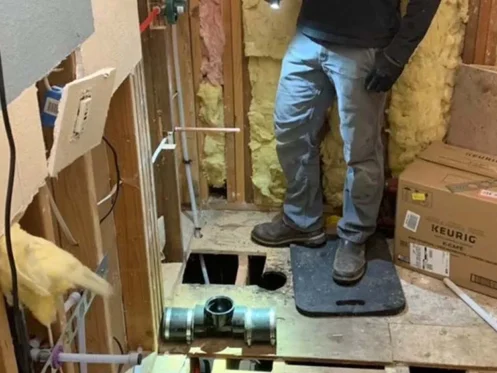If you experience persistent plumbing issues, repiping might be in order. This method involves replacing old, corroded pipes with new ones, improving your home’s water quality and plumbing system. Linn Benton Plumbing, your trusted provider of top-quality plumbing services, discusses everything you need to know before repiping your home.
WARNING SIGNS YOU NEED REPIPING
If your home was built before 1970, it’s a good idea to have your pipes inspected by an expert, especially if you still use cast iron or galvanized pipes. These pipes are prone to corrosion and likely to cause an emergency plumbing issue.Other telltale signs you need repiping include:
- Frequent leaks or bursts in your plumbing system
- Low water pressure throughout your home
- Discolored or rusty water
- Unpleasant odors or tastes in your water
- Noisy pipes or plumbing fixtures
TYPES OF PIPES
When choosing the right material for new pipes, you have several options. The most common materials for residential plumbing are copper and cross-linked polyethylene (PEX). Copper is a durable material lasting up to 50 years but also the most expensive. Meanwhile, PEX is a flexible material that’s easy to work with but unsuitable for outdoor use. Your top plumber in Lebanon, OR, will recommend the perfect pipe that suits your needs and budget.
INVOLVED COSTS
The cost of repiping your home will depend on several factors, including the size of your property, the type of piping you choose, and the complexity of the installation.
Repiping your home can be a significant investment, but it’s one that can save you time, money, and headache in the long run. By knowing the basics and working with a reputable plumbing company like Linn Benton Plumbing, you can ensure your plumbing system remains in top condition for years. Contact us today to schedule an appointment.
